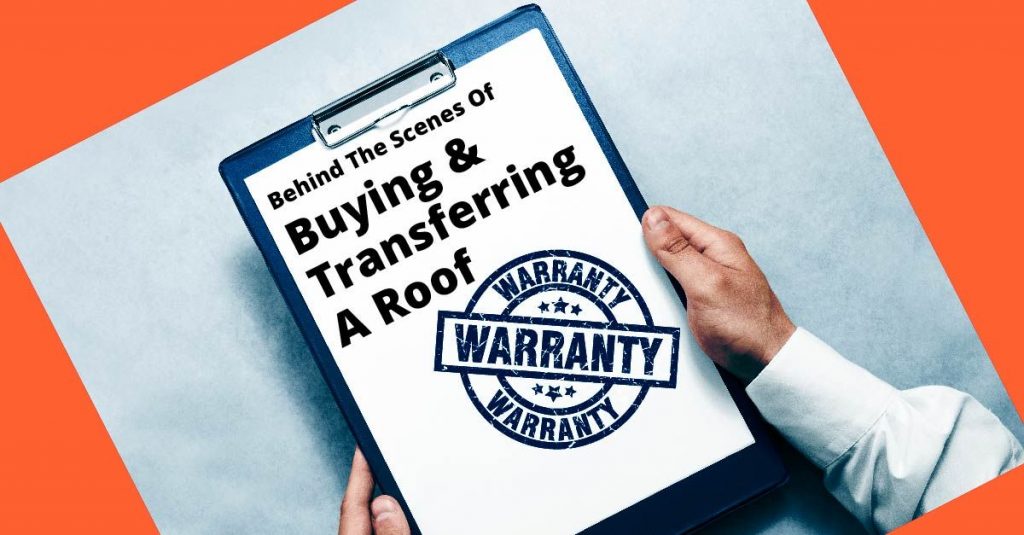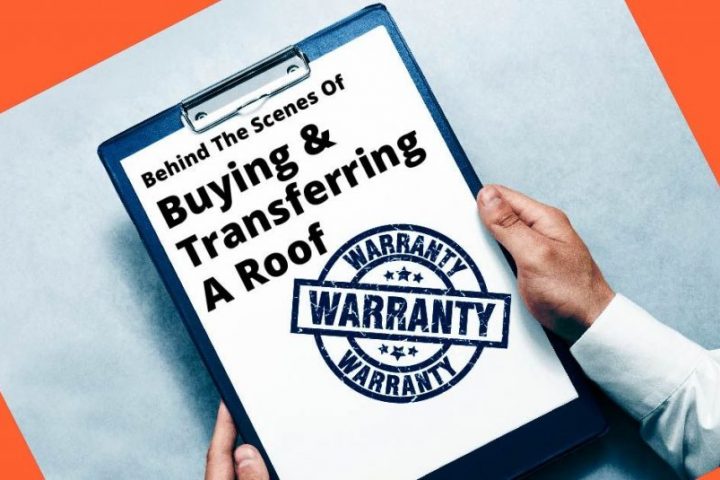
Whether you’re installing a new roof or having roof repairs done, you’ll want to protect your investment. This starts with making sure the roofing contractor you choose to work with will provide you with a warranty on products, as well as the work they have done.
You should be full of questions when it comes to your new warranty:
- Is the roof warranty transferable?
- What does the warranty cover?
- Are there separate warranties for parts and labor?
A lot of these answers may depend on the contractor you use. With this in mind, the following are a few important details you should know about roof warranties.
Is a Roof Warranty Transferable?
For Los Angeles homeowners, your roof is one of your most important real estate assets. As a result, you’ll want to safeguard it to get the most out of your investment. Roof warranties provide you peace of mind by covering the workmanship, roofing materials, installation errors, and the cost of a roof replacement. However, not all roof warranties are created equal.
Most manufacturers provide transferable warranties for roofing materials. However, most of these coverages allow for a one-time transfer only. While warranty procedures can vary across manufacturers and their product lines, you can expect some costs associated with the roof warranty transfer to the new owner. In most cases, there is a required timeframe to complete the transfer process after the home is sold.
Aside from material warranties, some roofing companies provide up to 10 years of labor warranties in Southern California. But are these roofing warranties transferable? They are with Roof Repair Specialist. Our labor warranties are tied to the address and not the owner, which means they will transfer whenever the property changes ownership.
Making sure your warranty is transferable is essential to its value. If it’s not transferable, then it means if you were ever to sell your house, the warranty would end. A transferable roof warranty can help provide a buyer with peace of mind, making your property even more attractive.
How to Transfer Roof Warranties to New Homeowners
Upon selling your California home, you should first notify your roofing company and the manufacturer about the change in homeownership. In most cases, roof warranties specify a required timeframe to complete the transfer. To avoid voiding the warranty, comply with this transfer window and pay any associated fees. Here are some important things to remember:
- Most warranties are transferable only once.
- Warranty coverage can change depending on the timing of the transfer and the roof’s age.
- There may be associated fees concerning roof warranty transfers to new owners.
Don’t hesitate to ask your trusted roofing company questions to make the most of your investment.
How to Buy a Roof Warranty
New roof installations typically come with a manufacturer and workmanship warranty. Manufacturer warranties cover defective roofing materials, while a workmanship warranty protects against improper installation and workmanship errors. While new roofs come with these standard warranties, California homeowners can choose to upgrade or purchase additional warranties.
Warranty upgrades can increase the coverage of your entire roof system. For example, instead of just covering shingles, you can choose to protect other roofing components such as the underlayment, soffit, ridge vents, and water barriers. Do these warranties transfer to new homeowners? In most cases, upgraded warranties extend to new homeowners, but you should read the terms for full details.
Before upgrading your warranty, talk to your trusted roofer to learn about your options and understand what your standard warranty covers. You’ll find that the most reliable roofing contractors provide California homeowners with different types of roof and labor warranties to meet their unique needs.
How Long Does a Roof Warranty Last?
Most manufacturer warranties last anywhere from 25 to 30 years, although there are options for 50-year and “lifetime” coverages. The coverage period depends on the roofing material and the manufacturer’s specifications. You can expect longer coverages for high-quality architectural shingles than for less durable and budget-friendly types.
Contractors offer anywhere from two to ten years of coverage for workmanship. When choosing a contractor, consider their years in business and assess how reasonable their warranties are. At Roofing Repair Specialist, we take pride in our decade of experience, and we are certified with Owens Corning, GAF, Polyglass, and BBB.
What Does a Standard Warranty Cover?
There are two types of standard warranties when it comes to the replacement or repair of your roof: labor warranties and material warranties. A labor warranty covers the service provided by the contractor. This means it will cover the service charge and labor costs for any repairs or installations performed — but only for a specified number of years. Essentially, a labor warranty will only cover the workmanship.
For instance, if your roof begins to leak within months after you paid for repairs, a labor warranty should cover additional repairs. However, if any materials need to be replaced, such as the shingles, a labor warranty will not cover the costs of purchasing those materials.
A material warranty will cover the materials used in the repair or replacement of your roof, but not the costs of labor. Material warranties are typically offered by the manufacturer of the materials and not by the contractor. Basic material warranties usually only cover manufacturing defects and premature deterioration within a specific timeframe.
If your shingles begin to degrade and they need to be replaced, the material warranty may cover the costs of the replacement shingles, but not the costs of having those shingles installed.
Standard Labor Warranties
The following are a few examples of some of the standard labor warranties we provide at Roof Repair Specialist in Los Angeles, CA:
- New roof installations – We offer up to 8- and 12-year warranties based on the type of roof installed.
- Roof repairs – We offer up to 8-year warranties for shingle and tile roof repairs and 2-year warranties for flat torch down roof repairs.
General Material Warranties
The following are a few of the general warranties on materials offered by manufacturers we carry:
- Owens Corning Duration Shingles – 50 years
- GAF 60 Mil TPO – 20 years
- Torch GTA – 12 years
What Voids Roof Warranties?
While roof warranties can have different coverage and specifications, there are several reasons why they get voided. Some examples include the following:
- Poor maintenance
- Improper installation
- Layering new materials over old ones
- Installing hardware on the roof (e.g. solar panels, antennas, satellite dish)
- Pressure washing
- Inadequate roof ventilation
- Unauthorized roof work
- Use of third-party components
To protect your roof warranty, make sure you understand the coverage details and only work with roofing companies that are fully licensed and insured. Moreover, keep up with roof maintenance and repairs to ensure that you have a durable and optimal roof for the years to come.
Is There a Situation Where You Wouldn’t Want to Keep the Roof Warranty?
Roof warranties have expiration dates, and they can get voided for several reasons. However, most contractors recommend ensuring that your investment is well-protected by a roof warranty. These warranties help:
- Mitigate roof risks, such as accidents, damages, and workmanship errors.
- Increase property value.
- Cover unexpected repair or replacement expenses.
Whether you choose to keep your home or put it for sale on the market, you benefit from the advantages of maintaining your roof warranty.
If you have questions about our roof warranties or about roofing in general, be sure to contact us at Roof Repair Specialist today. We are always more than happy to answer any roofing-related questions you might have, from roof replacement to roof inspections to warranty repairs.
As far as material warranties go, whether or not they are transferable depends on the manufacturer. You will need to speak with the manufacturer or with the contractor you worked with to get your material warranty transferred.
If you have questions about our roof warranties or about roofing in general, be sure to contact us at Roof Repair Specialist today. We are always more than happy to answer any roofing-related questions you might have, from roof replacement to roof inspections to warranty repairs.




